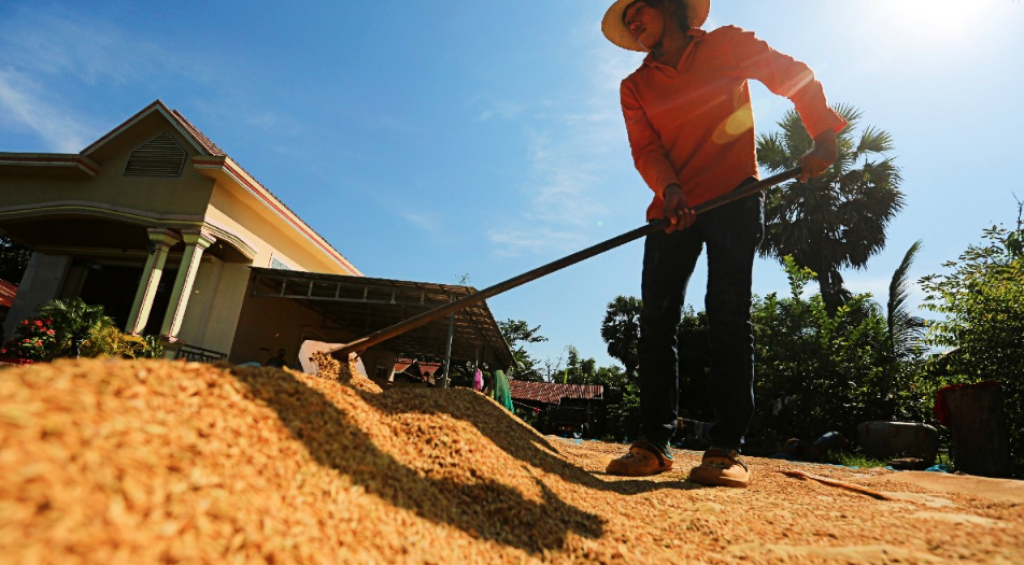The transition to global net zero to address climate change must be both ambitious and fair. Otherwise, it will not achieve its goals nor will it obtain the vital public support required over the long-term.
Although ambitious decarbonization will provide widespread benefits across Asia, the policies required to make the transition will create winners and losers.
Reaching Paris Agreement goals will require profound changes in the energy sector, including phasing out of fossil fuels from power generation, expansion of renewables, and the substitution of electricity for other types of energy. It will require ‘carbon sinks’, principally forests, to sequester more carbon to offset emissions that are otherwise difficult to eliminate.
Although these changes can increase employment, some energy sector workers will lose their jobs, primarily in fossil fuel extraction such as coal mining. The prices of fossil fuel-based energy will increase, and so will the price of goods and services produced using such energy.
Expanding areas of forests and bioenergy would require that agricultural production needs to take place in smaller areas, which may put pressure on agriculture. Our analysis finds that about 22% of the area devoted to cereal crops in Asia’s developing countries may be replaced by energy crops and forests under ambitious decarbonization policies.
Reductions in cultivated areas, in turn, can reduce food production and cause prices to rise. Research finds that around 60 million people could be pushed into hunger in Asia by 2050 due to efforts to meet Paris Agreement goals.
Those with low incomes spend a much higher share of their budget on food, which will be more expensive. Similarly, in many regions of Asia, lower-income households spend more on energy than do richer households, so increases in residential energy costs are also regressive.
Yet, failure to mitigate emissions growth also has regressive effects. The lowest income areas will bear the brunt of climate impacts, with more than a third of GDP at risk to climate change under a conservative and partial estimate. Within Asia, those who stand to lose most are low-income people—those working in agriculture, living in areas vulnerable to the effects of storms and flooding, and those who do manual labor under hot conditions.
For low carbon growth to be maintained long-term, climate change mitigation policies must preserve political support. Recent research has found that measures such as carbon pricing are most politically acceptable in the presence of generous social insurance and low inequality. Decarbonization policies may lead to political backlash and reversal when effects are regressive or lack compensation for the poor. Similarly, a major stumbling block in international climate policy negotiations is the perception of whether the distribution of costs among countries is fair.
The only path to long-term fairness within Asia’s developing countries is climate policy that is both ambitious enough to stem climate losses and with enough attention to fairness to be accepted over long periods.
To ensure the transition is fair, we recommend the following policies: Training and reskilling can help integrate those adversely affected by the low-carbon transition into growth industries. Jobs created by the energy transition will require new skills. Jobs in renewables will often be urban and comparatively higher skilled, whereas lost jobs are rural and low-skilled, so the same workers who lose employment are unlikely to fill new labor demands. Those losing jobs will need to be reskilled to find other occupations, while the education system will need to generate the higher skills needed by the renewables industry.
Labor markets can be supported by public services to help information flow on new training and job opportunities, as well as reforms to ensure that barriers to quality improvement are removed. During the transition, social protection, including unemployment benefits, are needed so that workers can smoothly transition to new job opportunities.
A fair transition depends on ensuring food security. Food is the single largest household expense among lower-income households in Asia’s developing countries. Equipping Asian agriculture to deal with the simultaneous pressures posed by mitigation policy and unmitigated climate change is critical to protect the livelihoods of many of Asia’s poor. In addition to investments in public services, land rights need to be strengthened to ensure that farming and forest-dependent communities are not displaced by increased demand for land.
To manage the increased costs of energy, food and other necessities, policies such as direct transfers, tax rebates, and other exemptions, and carve-outs to low-income households, should be put in place. Our research suggests that lump-sum rebates or transfers often benefit lower-income households more than tax cuts. Tax discounts or temporary exemptions to vulnerable sectors can help to smooth the adjustment of affected industries.
Beyond domestic fairness, international fairness – equity between developing countries and their wealthier counterparts – will not be achieved without better international coordination. That coordination is needed so that emissions reduction can happen where it is at the lowest cost, with compensation to ensure fairness for those who bear the cost. Right now, decarbonization pledges and commitments under the Paris Agreement are submitted by individual parties without agreed principles about how mitigation burden should be fairly divided.
Without agreed principles for burden sharing, there is little incentive for individual countries to do more, as climate benefits are shared by the world, whereas the countries that do more take on more cost. Obviously, it is unrealistic to get the entire world to agree on a common set of principles in the near term, but this may not be necessary for progress.
If some group of countries including major emitters could come together to agree on principles for allocating emissions under carbon budgets that meet Paris Agreement goals, as a basis for national commitments and carbon trade, outcomes could be more progressive.
The benefits of an ambitious climate policy based on international cooperation will disproportionately accrue to those who are most in need and who have the least historical responsibility for the climate crisis. The only path to long-term fairness within Asia’s developing countries is climate policy that is both ambitious enough to stem climate losses and with enough attention to fairness to be accepted over long periods.
Source : Asian development blog







































































